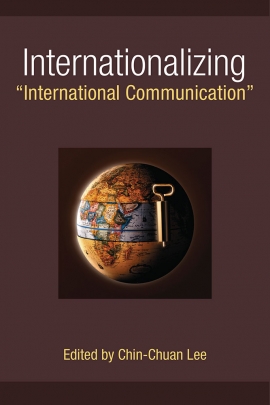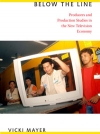
Why, in the era of globalization, would scholars contributing to the disciplinary subfield of international communication argue for “internationalizing” this research area?
This volume, edited by Chin-Chuan Lee, makes the case that media and communications studies remain limited by the Western, especially American, epistemological biases of their founding, and are overdue for re-assessment. A parochial nation-state centrism takes models derived from decades of domestic US experience as a baseline for audience research, and relies on outmoded assumptions of modernization theory as an epistemological horizon for approaching communication contexts in other parts of the world. The field, it is argued, hardly lives up to the moniker of “international” insofar as this term suggests some of the interlinkages, flows, and diverse cultures and identities that characterize the contemporary global media landscape. On the other hand, even when some recent research in the field engages with globalization theory, a tendency to over-emphasize the global-local nexus bypasses consideration of the nation-state altogether. Yet as Lee points out, the nation-state still matters inasmuch as it undergirds the global system and remains the guarantor of many of the institutional and legal structures, as well as the cultural reality, that constitute the media field and object of study. So the question is, how to theorize “internationally” in a globalized world.
The fifteen chapters collected here examine various dimensions of worldwide media and communications. Topics range from institutions and power to states, governance and policy, from capital and political economy to media industries, production and regulation, from cultural geography, public spheres, and identity to meaning making, values, visual culture, and cosmopolitanism. If anti-hegemonic and non-Western, post-colonial perspectives are considered for the sake of a desired “paradigm shift,” the status of state power and state influence in international communication comes to the fore. This presents an invitation to revisit “cultural imperialism,” a theme that focuses issues central to the collection. This excerpt from the chapter by Colin Sparks puts forward a revised conception of cultural imperialism as it relates to the new realities, complexities, and contexts within which one might speak of media domination in the contemporary world setting. Sensitive to the hegemonic subject position of the Western academy that has colored international communication studies, this volume takes a stand in a cosmopolitanism that self-consciously engages diverse currents of thought for insights from traditions outside the West as occasions to learn and recalibrate, giving voice to alternative and critical discourses about the study of international communication. A more holistic way of thinking is sought, a new point of departure that is responsive theoretically and methodologically to inter-cultural, multi-identity, and diasporic experiences.






